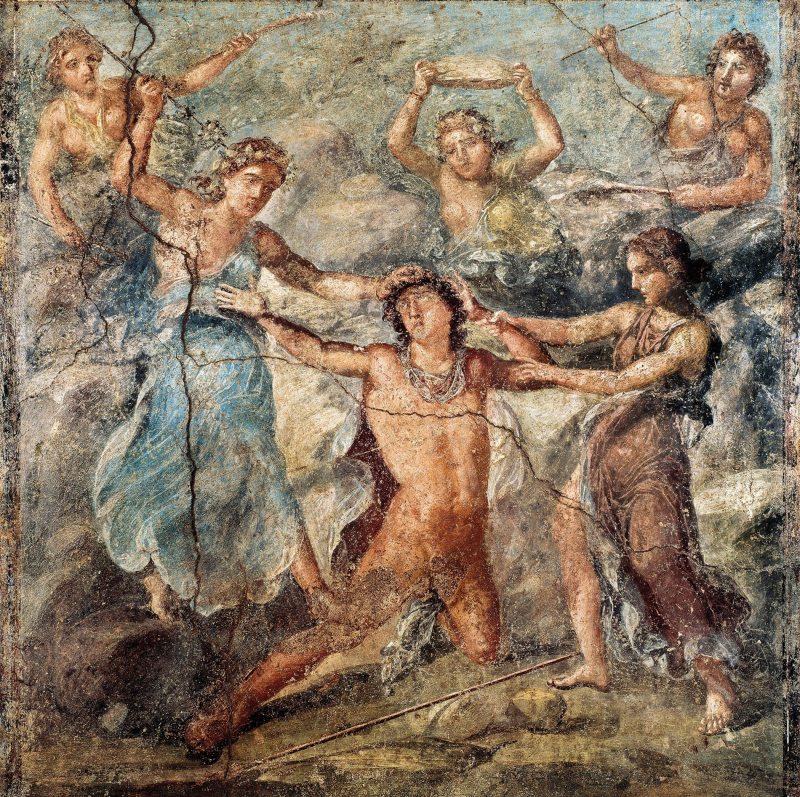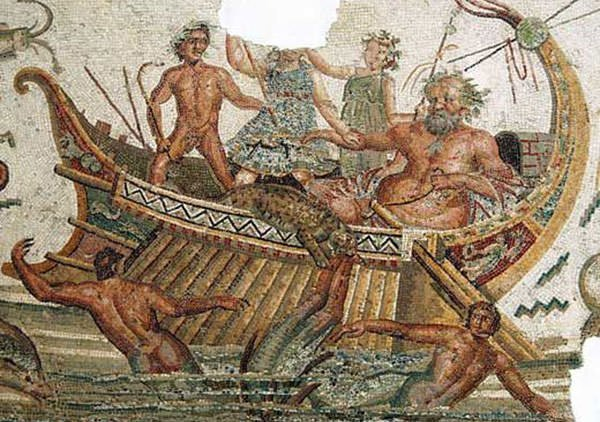Dionysus was not welcomed in many myths
While the Romans depicted Dionysus triumphantly, many of his myths depicted him as an outcast. Dionysus was a deity of craziness and festivity, and his devotees were notorious for behaving badly. The maenads were supposed to be so enamored of him that they would rend men to shreds if they interfered with their rites. As a result of these factors, Dionysus' mythology is littered with tales of Greek cities being unwelcoming or even hostile to the hedonistic god.
Dionysus attempted to return to his mother's hometown of Thebes after his consciousness was restored in Euripedes' drama The Bacchae. The kind, who was his cousin, refused to believe in his divinity and spoke out against his influence on the city's women. Dionysus punished King Pentheus by driving him insane and leading him to the woodland where the maenads were having their secret revels. In their rage, the maenads attacked him, and his mother killed him.
For imprisoning the maenads in his realm and threatening Dionysus, the king of Thrace was likewise horribly punished. The god sought sanctuary with Thetis and cursed Thrace with a drought. After that, he drove the king insane. King Lycurgus dismembered his son with an ax, mistaking him for a cluster of ivy. Dionysus then disseminated a rumor across Thrace, claiming that as long as Lycurgus remained, the area would be cursed with drought and misfortune. The people revolted against him, and the monarch was assassinated by a mob.
Dionysus is only welcomed by those who have no idea who he is in various myths. According to at least two accounts, Dionysus was kidnapped by pirates who mistook him for a wealthy human prince or kidnapped him to sell him into slavery. These stories proved his divinity, which was sometimes questioned in his legends.












